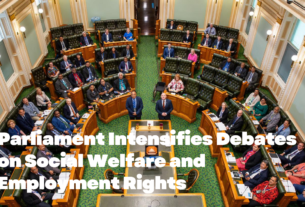In a historic turn of events, Cardinal Leo O’Donnell of Chicago ascended to the papacy as Pope Leo XIV, marking the first time an American has held the position. While his election is a momentous occasion for the Catholic Church, it also brings to light a unique challenge: the U.S. tax system.
The United States is one of the few countries that taxes its citizens on income earned abroad. This means that despite residing in Vatican City, a sovereign state, Pope Leo XIV remains a U.S. citizen and is potentially subject to U.S. tax obligations. Experts suggest that the pontiff may need to file annual tax returns and disclose his worldwide income to the Internal Revenue Service (IRS).
The Vatican, while independent, has taken steps toward financial transparency. In 2015, the Vatican Bank agreed to open its books to U.S. tax authorities under the Foreign Account Tax Compliance Act (FATCA), aiming to combat tax evasion and promote financial integrity .
However, the question remains: how will Pope Leo XIV navigate the complexities of U.S. tax law while fulfilling his duties as the spiritual leader of over a billion Catholics worldwide? His situation underscores the intricate intersection of faith, nationality, and finance in today’s globalized world.
As discussions continue, one thing is clear: the pontiff’s financial affairs will be under scrutiny, not just from the faithful, but also from tax authorities across the globe.




